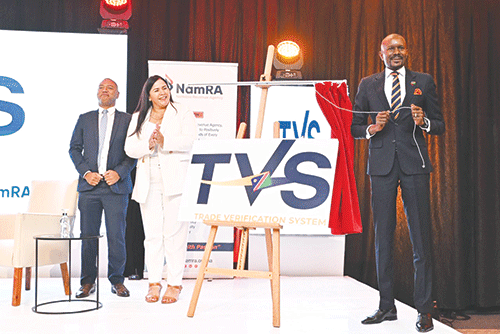Namibia is among a handful of African countries that have successfully developed and implemented a trade verification system (TVS) to monitor cross-border financial transactions relating to the importation and exportation of goods.
This is after Namibia on Wednesday launched the TVS, with finance deputy minister Maureen Hinda-Mbuende saying by deploying the TVS, Namibia is expected to reduce the estimated N$33 billion potential tax-related offences as estimated by the Financial Intelligence Centre.
This web-based regulatory system is aimed at mitigating the illegal outflow of funds from Namibia. It will be used as a monitoring capability to reconcile the cross-border transfers of money with the movement of goods into the country. “The benefits for the state are enormous. Namibia will see to it that there is a significant reduction in fraudulent value-added tax (VAT) refund claims, while empowering the Namibian government to uphold fair trade practices and financial transparency,” said the minister, whose remarks were delivered by deputy executive director for economic policy in the ministry, Oscar Capelao.
Hinda-Mbuende added that the system will aid in curbing illicit financial activities and misreporting to ensure accurate and efficient tax collection. Furthermore, she stated illicit financial outflows not only deprive countries of crucial resources but also contribute to the perpetuation of poverty and inequality.
“Illicit financial flows were identified as a substantial impediment to sustainable development in African nations. These outflows obstruct investments in critical sectors, impede overall economic growth and further intensify prevailing socio-economic challenges,” explained the minister.
At the same occasion, deputy governor of the Bank of Namibia, Leonie Dunn said the development of this innovative digital trade verification platform remains paramount to Namibia, as it ensures the strengthening of mechanisms to address nationally-identified vulnerabilities, as well as furthering global market integrity and competitiveness. “Any flow of funds that is categorised to be for goods and does not get reconciled within the days as legislated in the exchange control regulations will, therefore, warrant investigations by officials – and where necessary, punitive measures will be taken when the commission of an offence is discovered,” Dunn warned.


